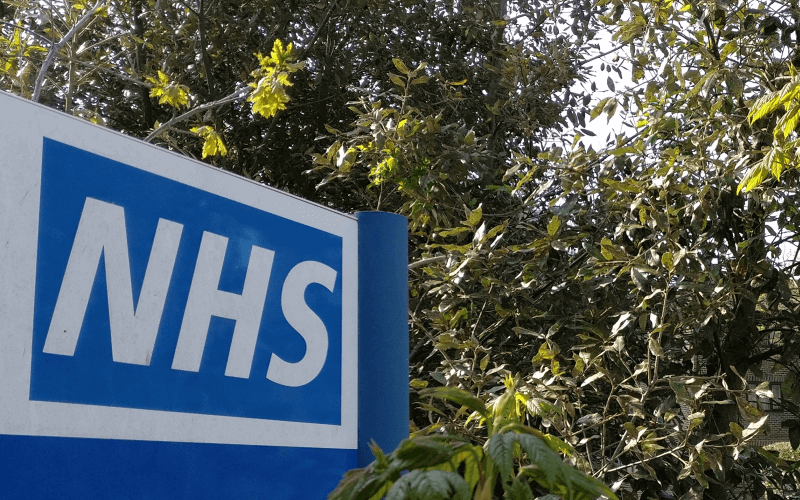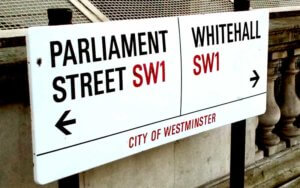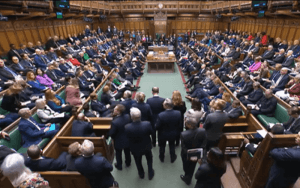An autistic man will receive £20,000 compensation after a “discriminatory” refusal to make the reasonable adjustments he requested for a job interview with the government agency responsible for NHS digital technology.
Chris Tyerman applied in August 2021 for posts in cyber security with NHS Digital but after being shortlisted for the job was told that some of the adjustments he needed to be made ahead of an interview were not possible.
As he struggles with communication, among his requests were to be able to see the questions he would be asked in advance, and for his interviewers to avoid open-ended questions.
But NHS Digital – which became part of NHS England earlier this year, but described itself at the time as a Disability Confident employer – rejected these requests, arguing that all applicants had to be treated the same, a clear breach of the Equality Act.
His request to have a skills assessment or work trial was also rejected.
Tyerman, from Barnsley, has several long-term health conditions as a result of treatment for lymphoma as a child, and has a masters degree in computing information security and forensics.
When NHS Digital rejected his requests, he decided not to attend the interview because he felt its efforts were paying “lip service” to the need to make adjustments.
He also decided that if NHS Digital was not willing to offer reasonable adjustments in the interview, it would not provide the adjustments he would need to do the job.
NHS Digital later claimed that employment and security checks meant a work trial would be “prohibitive”, while providing questions three days before the interview would not be a reasonable adjustment, and avoiding open-ended questions would be “unreasonable”.
Tyerman applied a second time for a position, as a cyber security adviser, in October 2021.
This time, a telephone interview took place, but there were further problems with securing the reasonable adjustments he needed, including a refusal to avoid asking open-ended questions, which led to him being unsuccessful with his application.
When he finally received feedback on his failure to secure the position, he was told his answers to the open-ended questions “were not strong/in depth enough”.
Tyerman believes NHS Digital’s actions were discriminatory under the Equality Act, as well as breaching the NHS Constitution for England and the UN Convention on the Rights of Persons with Disabilities.
After NHS Digital failed to provide a “positive response” to his complaint about his treatment, he took his case to an employment tribunal.
During the tribunal process, NHS Digital requested a medical report to confirm his autism diagnosis, despite having seen a report from a clinical psychologist who had already diagnosed him, and Tyerman receiving support from an autism service funded by his local council.
A settlement in the case was reached after a conciliation process led by Acas.
But it was only after a 16-month legal battle that NHS England offered a £20,000 payment as compensation for injury to feelings, although it failed to admit liability.
It has also agreed to accept Tyerman’s feedback as part of its review of how it deals with reasonable adjustments for disabled staff members and job applicants.
Tyerman welcomed the settlement by NHS England and said he felt “vindicated”, but he described the initial “aggressive” defence by NHS Digital as “destructive, inappropriate and a waste of NHS resources”.
He said: “The adjustments I asked for were reasonable and I hope that the outcome will encourage a more positive attitude to recruiting neurodiverse people.”
He told Disability News Service: “I believe that more autistic individuals would be able to demonstrate their knowledge and skills effectively if the NHS was more flexible in its job application processes.
“For example, rephrasing the question when the answer given isn’t the one that was expected.
“Autistic people find it much more difficult to correctly identify exactly what a question is asking than those without neurodiversity.”
He added: “I would like to thank my family who supported me. I wouldn’t have been able
to take this case without them.”
An NHS England spokesperson said it would “not be appropriate” to comment on individual cases.
But she said: “The NHS is committed to providing reasonable adjustments for candidates and staff with long-term conditions, impairments, disabilities, and caring responsibilities with feedback from candidates used to review and improve policy.
“The annual Workforce Disability Equality Standard report published this week shows important progress is being made with record numbers of disabled staff members on NHS boards.”
Those new figures from NHS England show that only 72.2 per cent of disabled staff reported they had all the adjustments they needed to perform their duties in 2021, a fall from 76.6 per cent in 2020.
The annual report on NHS England’s progress on workplace disability equality also found that 17 per cent of disabled staff experienced harassment, bullying or abuse from managers, compared with 9.6 per cent of non-disabled staff.
A note from the editor:
Please consider making a voluntary financial contribution to support the work of DNS and allow it to continue producing independent, carefully-researched news stories that focus on the lives and rights of disabled people and their user-led organisations.
Please do not contribute if you cannot afford to do so, and please note that DNS is not a charity. It is run and owned by disabled journalist John Pring and has been from its launch in April 2009.
Thank you for anything you can do to support the work of DNS…

 Black disabled pupils face systemic barriers and injustice at school, says new report
Black disabled pupils face systemic barriers and injustice at school, says new report Government is misrepresenting workplace disability inequality, MPs are told
Government is misrepresenting workplace disability inequality, MPs are told Stammering charity calls on parliament to act on ‘febrile atmosphere’ in debates
Stammering charity calls on parliament to act on ‘febrile atmosphere’ in debates